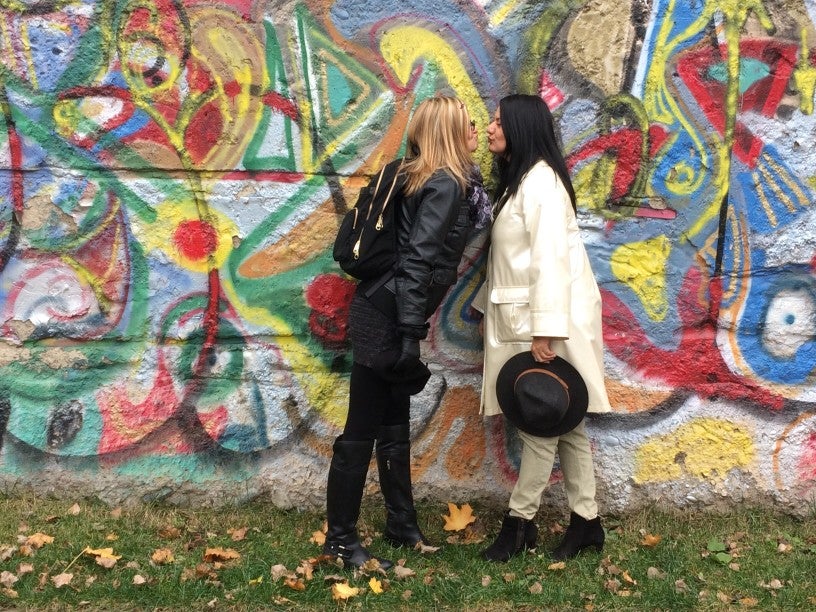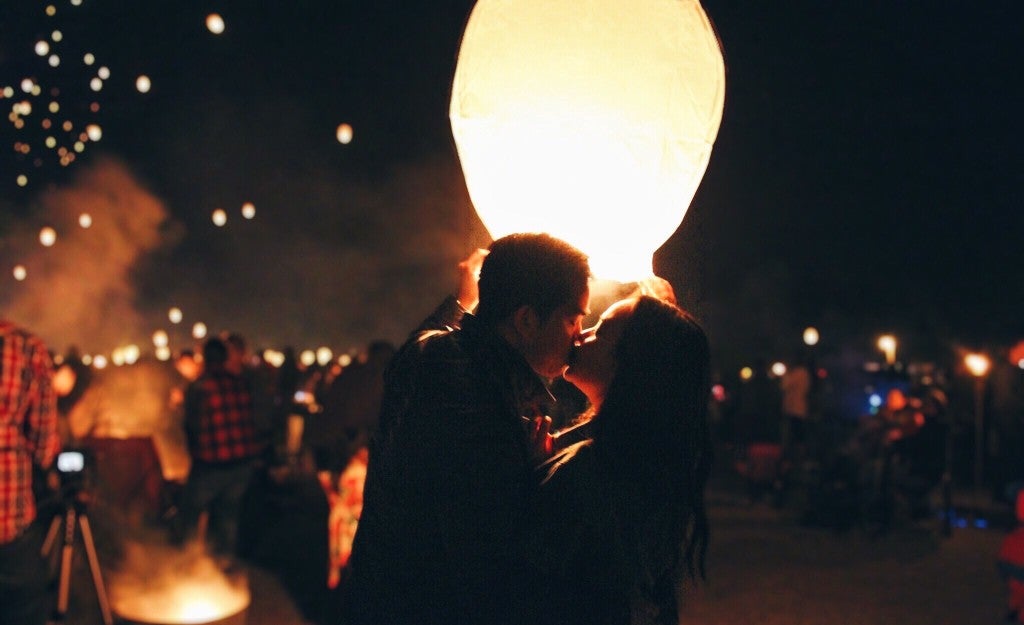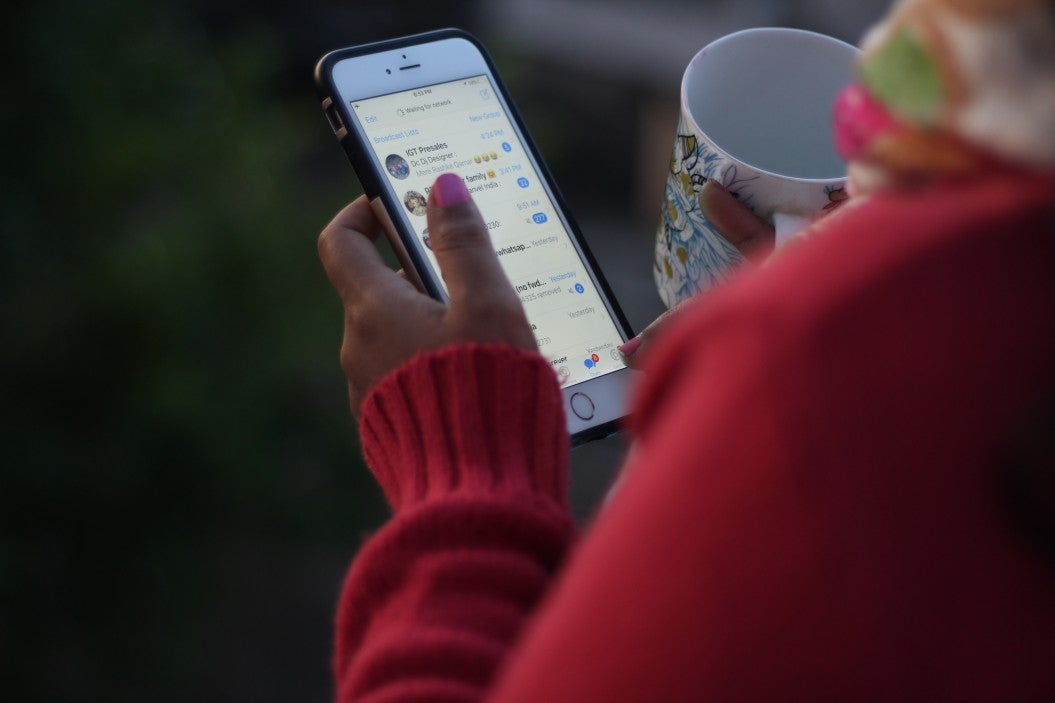If you find yourself shrugging and saying “they just weren’t my type” after a breakup, it might be time to consider shifting your ideas about “type” altogether. Science confirms that most people are drawn to a specific type of potential mate. However, research also tells us that some of the hard-wired reasons why we favor some people over others aren’t necessarily good ones. Here are seven reasons to date outside your type, along with four dating tips for casting a wider net in the dating pool.
7 Reasons to Challenge Your Type
They say love is a many splendored thing. As it turns out, it’s also a chemical one. According to Katherine Wu at Harvard, scientists like Helen Fisher at Rutgers have distilled love into three components: lust, attraction and attachment — and all three of them have a lot to do with hormones.
When you’re navigating the rough waters of the dating world, however, fluctuating hormones are probably the last thing on your mind. Instead, you just want to know why you keep striking out every time you try dating someone new. If you’ve been unlucky in love, the solution could be as simple as dating outside your type.
1. Prince (or Princess) Charming Isn’t Real
If you’re determined to find your Prince (or Princess) Charming, you’re probably going to end up kissing a lot of frogs. According to clinical psychologist Jennifer Taitz, the fixation on finding the “perfect” match is especially common among women seeking men — to the point where therapists notice it cropping up more and more in counseling sessions. When women can’t find The One, they tend to wonder if something is wrong with them.
As Taitz says, however, “The problem with looking for the perfect mate is there’s no such thing.” She adds that women are particularly vulnerable to the idea of a destined soulmate because Hollywood and women’s magazines reinforce the idea that happiness is impossible unless you meet your “prince.”
Instead of looking for Mr. Darcy or Channing Tatum in that scene from Magic Mike, Taitz encourages women to find a man who shares their core values. Focus on the big stuff — sexual compatibility, desire to have children, obsession with cute dogs — and be flexible on the not-so-important stuff.
2. You Limit Your Possibilities
When it comes to thinking outside the “type” box, getting out of your comfort zone can mean anything from giving short guys (or curvy gals) a chance, to trying interracial dating. As relationship expert April Masini told Bustle, “People do tend to have types, especially if they live in homogenous communities.” While there is nothing wrong with sticking to partners from a specific ethnic, religious or racial group, being open to a broader range of people gives you a lot more chances to find love.
3. Opposites Attract

Paula Abdul said it all the way back in 1988 — opposites attract. And while your type might not be a suspender-wearing cartoon cat, your ideal match could be someone with vastly different traits than your own. As Rachael Rettner at Live Science points out, researchers have found that “men and women in relationships need not be similar in personality in order to have a successful long-lasting marriage.”
Rettner cites one study conducted by researchers from the University of California, Berkeley, which found that personality similarities between spouses were actually associated with “decreased marital satisfaction.” And in some instances, personality differences were associated with “greater marital success.”
The reason for these results? Robert Levenson, the author of the study, told Rettner that “different personalities may provide couples with complementary resources for dealing with life’s challenges.” In other words, when stuff hits the fan, couples who possess a wider range of coping traits have a bigger arsenal for successfully resolving problems.
4. Your Type Might Be All Wrong
Have your last five relationships looked (and ended) exactly the same way? It’s possible you have a type — and that your type falls short of what you need for a lasting relationship. Australian Psychologist Barbara Greenberg writes that the five most common ways people define their “type” include:
- Personal appearance.
- Preferring a partner with a specific occupation.
- Having hard age limits for a potential mate.
- Going for a certain personality (the “bad boy” or the “nerd”).
- Rejecting someone outright because you think they’re too outgoing or too quiet.
The tall, extroverted investment banker who rides a motorcycle to the office might look good on paper, but if you find yourself dating the same type of person over and over with nothing but a broken heart to show for it, you might be better off expanding your horizons. Similarly, rejecting the cute girl your friends keep trying to set you up with just because she’s a few years past your ideal age range could mean missing a chance to make a true love connection.
Maybe, like one of these Craigslist seekers of romance, you just want a man who really loves toast. But what if that means missing out on a gluten-free guy who is otherwise perfect for you? 
5. Seize Opportunities to Grow as a Person
Dating can be an enriching experience for many reasons — it’s a chance to meet new people, enjoy new experiences and transform as a person. Even if the relationship doesn’t last, you get to know more about yourself — and what you like in a potential partner — along the way.
If your relationships always seem to fizzle and burn out, the problem isn’t necessarily you. On the contrary, it might simply be your heart’s way of telling you that you’ve matured. Heather Lynn Temple at Mind Body Green writes that boredom with your go-to type can be an indicator that you’ve outgrown a certain kind of person. “Being bored with your old ‘type’ — especially if your type has never brought you the kind of love you want — is often a sign that you’re outgrowing old, unproductive patterns, and getting more in touch with how to really be your essential self.”
6. Smash Your Boundaries

Do you keep your apartment in a state of military-level cleanliness? Have hard and fast rules about carb consumption? Silently judge people who see the movie without reading the book?
In the 2004 film Along Came Polly, Ben Stiller plays Reuben Feffer, an insurance underwriter jilted by his new wife on their honeymoon. As he tries to get over being cheated on, he meets Jennifer Aniston’s Polly Prince, a bohemian risk-taker who both fascinates and frightens the neurotically prudent Reuben by eating peanuts out of a community bowl in a dive bar, salsa dancing the night away and encouraging him to vent his anger by stabbing his carefully arranged decorative pillows.
Although taking a knife to home decor items might go too far for most people, there is something to be said for dating people who force you to reexamine your personal limits — and get outside your comfort zone.
For some people, this means teaming up with an extrovert who challenges your introvert tendencies. For others, smashing boundaries includes giving interracial dating or interfaith relationships a try. As Elizabeth Aguirre at Ebony writes, “The cool part about blending two different backgrounds is the ability to create and share new traditions. For example, one person in the relationship might have relatives who drink and party at family functions, while the other’s family comes from a more traditional, religious background. This scenario presents a unique opportunity for the couple to combine elements from both upbringings.”
For those willing to challenge their own boundaries in the dating game, the rewards are usually well worth the growing pains. Aguirre writes, “If two people are truly in love, they will go above and beyond what is necessary to transcend their culture and make things work, often by creating a new and improved lifestyle in the process.”
7. Gain Insight Into Why You’re Drawn to Certain People
If you’re in the women seeking men camp, do you always fall for the bad boy? And for those among the men seeking women crowd, how often do you get weak in the knees for the sophisticated urbanite who can dodge city traffic in five-inch stilettos?
Whether you crave a mate who rocks your world in bed, or you long for someone you can snuggle up with and binge watch CSI on a Saturday night, scientists say there are several biological and social factors that drive people toward a particular type.
According to David Perrett, a researcher at Scotland’s University of St. Andrews, the majority of people actually prefer a romanticized version of… themselves. In studies, participants were asked to rate the attractiveness of several faces. What they didn’t know, however, was that researchers manipulated one of the images to resemble participants’ faces on a member of the opposite sex. As Brie Cadman at More writes, “Of all the faces to choose from, the students almost always preferred the face that was essentially their own.”
Although this may sound like the ultimate exercise in narcissism, researchers say that what’s really happening is that most people are conditioned to select mates from similar upbringings, intelligence levels and socioeconomic backgrounds. This explains why some people always seem to end up dating someone similar to their mom or dad — even if the person exhibits negative traits or character flaws.
By taking a hard look at the type of person you gravitate toward, you could end up learning a lot about yourself — and why it’s a good idea to dig a little deeper in the dating pool.
4 Dating Tips for Expanding Your Type
If you’re on board with trying something (and someone) new when it comes to dating, here are four ways to find a partner who’s delightfully different.
1. Try New Hobbies

It’s a bit of a cliché among dating tips, but it’s true — one of the best ways to meet new people is to simply try new things. Ideally, aim for hobbies that involve other people, such as group classes. Bonus points if you force yourself outside your comfort zone, such as taking a ballroom dancing class even if you have two left feet.
2. Expand Your Social Circle
If you want to date different types of people, start by making new and interesting types of friends. Above all things, keep an open mind. Dating expert Kimberly Seltzer tells Reader’s Digest, “When you’re too target specific, you close yourself off to so much.”
3. Put Your Phone Down

Smartphones may be an introvert’s best friend, but they interfere with our ability to “be in the moment.” If your head is buried in your phone, you’re automatically closed off to people. Research shows that phones have a negative impact on existing relationships, but they can also stop you from forming new ones.
4. Let Friends Set You Up
Sometimes, others see traits in us we don’t always notice on our own. Before you agree to a blind date, however, set some ground rules. The Frisky recommends:
- See a Photo First - Sure, you’re open to dating outside your type, but that doesn’t mean you have to make the “blind” part of blind date literal. It’s okay to get the lay of the land, so to speak. You never know, you might end up really hitting it off. (This is why it’s always a good idea to take sample size of ASTROGLIDE along.)
- Ditch the Wingman - Although you might like the idea of safety in numbers, double dating with a friend can make a blind date feel awkward. At the same time, you should always meet a blind date in a public place, and let a friend or loved one know where you’ll be and for how long.
- Set Limits - Always give yourself an easy out. Limit your interaction to a single drink after work, or tell your date beforehand that you have an appointment you can’t cancel. If the date goes well, you can schedule a follow up in a few days. If it’s not going well, you have an excuse to abandon ship.
- Talk on the Phone First - Sometimes, it helps to break the tension by chatting on the phone prior to meeting in person. It’s also a good way to do a little pre-screening so you know there’s at least a little compatibility between you.
